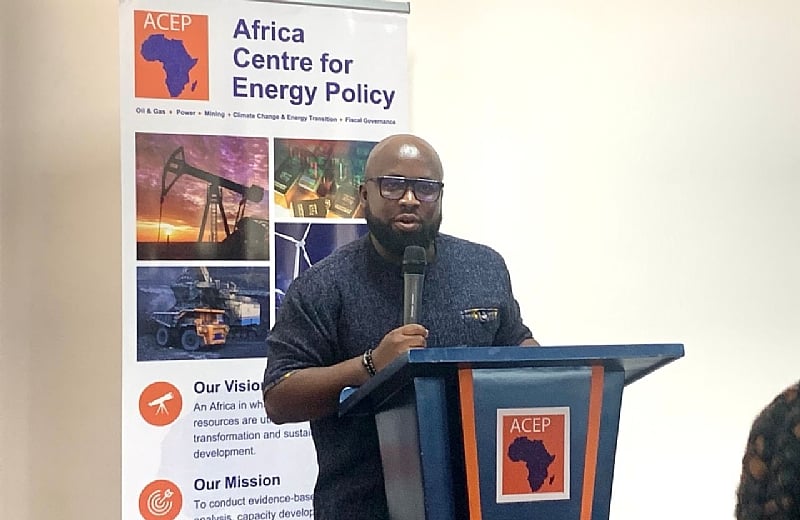The Africa Centre for Energy Policy (ACEP) has released a report revealing a significant disparity in how petroleum tax revenues are allocated in Ghana. Out of the substantial GHS 9.7 billion collected annually, a mere GHS 2.4 billion, representing roughly 25%, is channeled towards development initiatives. The remaining GHS 7.3 billion is absorbed by debt servicing and operational costs within the energy sector, raising concerns about the effectiveness of revenue utilization for national progress. This imbalance highlights a critical need for greater transparency and accountability in the management of petroleum revenues to ensure that these resources contribute meaningfully to the country’s development agenda. ACEP’s findings underscore the urgent need for a comprehensive review of the current framework to optimize the use of these vital funds.
A key finding of the ACEP report is the disproportionate allocation of funds towards regulatory margins and operational expenses, rather than development projects. According to Kodzo Yaotse, Policy Lead for Petroleum and Conventional Energy at ACEP, only the Special Petroleum Tax (SPT) out of the various levies contributes directly to national development. A significant portion of the collected revenue, amounting to GHS 7.6 billion annually, is allocated to regulatory margins managed by the National Petroleum Authority (NPA) and the Bulk Oil Storage and Transportation Company Limited (BOST) for downstream operations. While these operational costs are essential for the functioning of the petroleum sector, the substantial amount allocated to them raises questions about the efficiency and effectiveness of these expenditures, particularly in light of the limited resources directed towards development projects. This imbalance suggests a potential for optimization by streamlining operations and redirecting a portion of these funds towards more impactful development initiatives.
The lack of transparency and accountability in the management of these petroleum levies further complicates the issue. While the NPA and BOST play crucial roles in the downstream petroleum sector, the allocation of such a large portion of revenue to regulatory margins without clear mechanisms for public scrutiny raises concerns about potential inefficiencies and the need for greater accountability. The absence of a comprehensive breakdown of how these funds are utilized makes it difficult to assess their impact and ensure optimal resource allocation. ACEP’s call for greater transparency emphasizes the need for clear guidelines and reporting mechanisms to ensure that these substantial revenues are used judiciously and effectively.
ACEP advocates for a paradigm shift in how petroleum revenues are managed, proposing the conversion of regulatory margins into tax revenues. This restructuring would bring these funds under the purview of the national budget, allowing for greater oversight and accountability. By treating these margins as tax revenue, the government can implement more rigorous budgetary controls and prioritize the allocation of these resources towards critical development projects. This shift would also provide a more transparent platform for public scrutiny and ensure that the funds are utilized in a manner that aligns with national development priorities.
Furthermore, ACEP recommends a comprehensive reassessment of the current levy structures to maximize their impact on national development. This review should encompass an analysis of the various levies, their intended purposes, and their actual contributions to development. By critically evaluating the effectiveness of each levy, the government can identify areas for improvement and streamline the system to ensure that revenue collection is optimized and directed towards the most impactful projects. This reassessment should also consider the socio-economic implications of these levies and strive for a balance between revenue generation and affordability for consumers.
In conclusion, ACEP’s report highlights a critical need for reform in the management of petroleum revenues in Ghana. The disproportionate allocation of funds towards operational expenses and debt servicing, coupled with the lack of transparency and accountability, hinders the potential for these resources to drive national development. By converting regulatory margins into tax revenues and reassessing the existing levy structures, the government can unlock the full potential of petroleum revenue for the benefit of the nation. This requires a commitment to greater transparency, accountability, and a strategic approach to revenue allocation that prioritizes development initiatives and ensures that these vital resources contribute meaningfully to the country’s progress.














